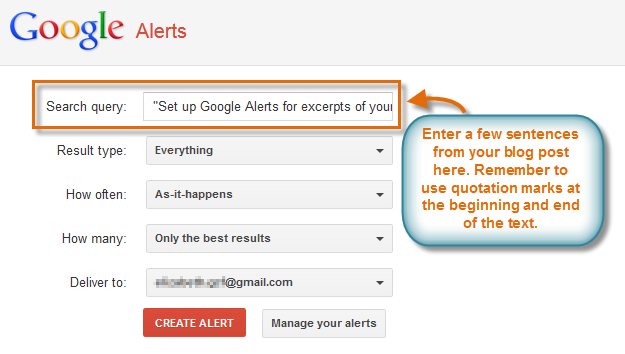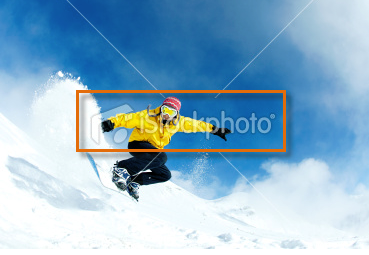Blog Basics
Copyright and Fair Use
Protecting your intellectual property
Copyright protects the things you create too. You own the original content you post on your blog. If people copy or steal your intellectual property, you have the right to try to stop them.
Guarding your content
The best way to protect your content is to keep an eye out for it elsewhere. These tips can help you tell if your content has shown up on another website or blog:
- Use plagiarism search services.
These services analyze your blog or site, then search for sites with identical content. Copyscape.com is a reputable site with a free plagiarism search. - Set up Google Alerts for excerpts of your posts.
Google Alerts is a service you can use to automatically email you when sites post new information about a person, thing, or event. You can create alerts for individual posts by entering a few sentences from your post in the Search Query field. (Make sure to use quotation marks.) If that text shows up elsewhere on the Web, you'll receive an email. Creating a Google Alert for each of your posts can be time consuming, so you may want to limit your alerts to posts that people are likely to copy, like tutorials. Setting up a Google Alert for a blog post
Setting up a Google Alert for a blog post - Add watermarks to your images.
A watermark is something you add to an image to identify yourself as its creator—usually a symbol or some text. Watermarks make it easy for you and your readers to recognize images you created. They also can have the effect of discouraging others from taking your images in the first place. You can easily create watermarks in image editing programs like Picasa and Photoshop. A watermarked image
A watermarked image
What to do if you find your content on another site
There are two things you can do if you find your images, text, or other media on another website or blog. First, contact the person who runs the blog or site that took your content. Most blogs list a contact email address, but if you can't find one you can always leave a comment on the offending post. Ask them firmly but politely to remove your content (or give you credit, if you don't mind sharing it). This can work, especially in cases where the other person didn't realize any wrongdoing had occurred.
If contacting the blogger doesn't work, you may want to file a DMCA takedown request. DMCA refers to the Digital Millenium Copyright Act, a law designed to help copyright holders protect their content. Under this law, if a site steals your original content you can complain to that site's service provider. If the service provider finds your complaint valid, it will take down the content.
To learn more about filing a DMCA complaint, read How to Send a DMCA Takedown Notice by Carolyn E. Wright from the blog Black Star Rising.






